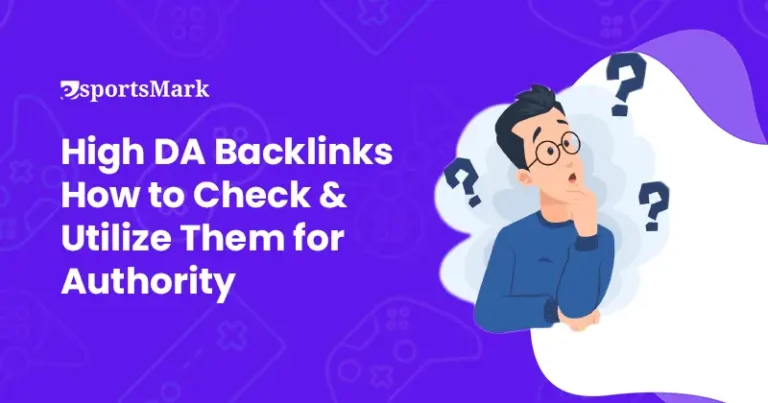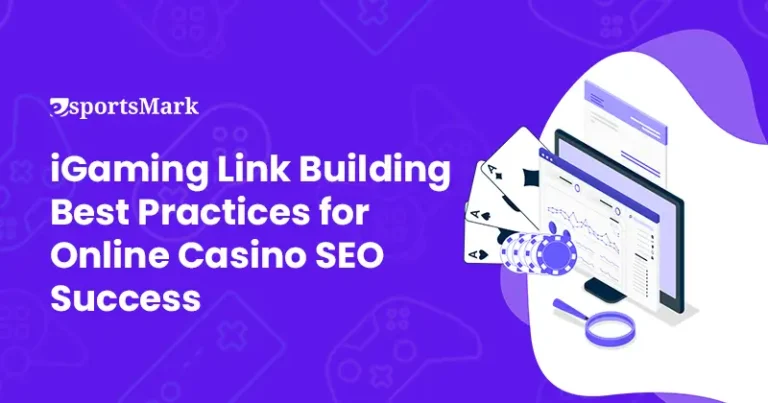Editorial Backlinks: Boost Rankings with Authority Links

When it comes to scaling organic visibility in hyper-competitive niches like esports, casino, and betting, few tactics hold more weight than securing high-quality, editorial backlinks. These are the kinds of links search engines trust the most. But despite their power, many businesses either overlook them or misunderstand how to obtain them.
Most brands focus on building links through guest posting or sponsored content, often missing out on natural editorial placements. These are not just harder to get but more valuable, too.
Investing in casino editorial link building services can help you earn placements within genuine content pieces on authoritative websites. This kind of backlink signals to search engines that your website is worth referencing organically. A study from Moz consistently shows that editorial links coming from relevant, authoritative sources have the highest correlation with ranking improvements. Brands that build their strategy around these links tend to see long-term, sustainable SEO success. When you prioritize editorial links, you’re not just building authority you’re future-proofing your SEO against algorithm changes.
In the following sections, we’ll unpack how editorial backlinks differ from other types, how they support semantic SEO, and why building topical authority around them is essential for your digital presence.
What Is an Editorial Backlink?
An editorial backlink is earned, not bought or traded. It’s a hyperlink that a publisher includes within a piece of content because your site adds value to their narrative. These links usually:
- Appear naturally within high-quality, relevant content
- Use contextually relevant anchor text
- Come from sites with real authority and traffic
These are links placed voluntarily by authors, editors, or webmasters because they trust your content or find it worth referencing. Unlike sidebar or footer links, editorial backlinks exist within the body of content where search engines place the most weight. And unlike paid placements, they don’t violate Google’s Webmaster Guidelines.
Editorial Links vs Contextual Backlinks: Understanding the Difference
While often used interchangeably, not all contextual backlinks are editorial. A contextual backlink is placed within relevant content but it may or may not be editorial. An editorial link, by contrast, is one the author adds willingly, typically without your direct input. That’s what makes them truly “natural backlinks” or “earned backlinks.”
Editorial links are often referenced in the same breath as contextual backlinks, content-based links, or natural links but their defining feature is intent. They are a result of quality content, not direct outreach or exchange. This distinction plays a crucial role in semantic SEO, where Google’s algorithm tries to understand not just the content but the intent and relationships behind it.
Natural Backlinks and Their Role in SEO
Natural backlinks are acquired without any formal link-building outreach. They happen when your content is valuable enough for others to reference on their own accord. These links contribute heavily to trust and authority in Google’s eyes. In competitive industries like betting and casino, where link spam is common, natural backlinks stand out as a clear signal of quality.
Earned links also support broader SEO goals. By appearing in authoritative content pieces, you build your brand’s visibility and allow Google to better associate your site with topically related keywords. The more high-quality sites that link to your content naturally, the more your site is seen as a topical authority.
What Are Editorial Link Building Services?
Editorial link building services help brands acquire white-hat backlinks from real publications, often through manual outreach and content-driven collaboration. These aren’t sponsored links but earned media placements achieved through relationship building and value exchange.
The key components of a successful service include:
- Manual outreach to niche-relevant blogs and publishers
- Development of unique content assets worth referencing
- Contextual placements within content (not author bios or footers)
- Transparent reporting of backlink source, metrics, and anchor usage
White Hat Link Building for Casino, Betting & Esports Sites
For industries like casino and betting, where compliance is crucial, a tailored editorial strategy avoids risk while improving visibility. Top providers focus on placements from real websites with organic traffic and genuine engagement.

A well-executed package could include 100% editorial white hat backlinks, authority-based domain filtering, and thematic relevance checks ensuring your site earns trust from both readers and search engines.
Link Building Packages: What to Look For
Not all link building services are created equal. When choosing a package focused on editorial links, look for:
- Real, traffic-generating websites
- Contextual in-article placements
- Niche relevance (especially important in betting, esports, and casino)
- Clean anchor text profiles
- Transparent metrics (DA, DR, traffic, etc.)
Packages that promise hundreds of links without clarity on source or relevance often include spammy or PBN links. Editorial link building should prioritize quality over quantity, always.
Building Topical Authority with Editorial Links
Topical authority isn’t built overnight. It’s the result of consistent content creation, smart internal linking, and earning editorial backlinks that reinforce your subject matter expertise in the eyes of search engines. It requires your website to not just publish isolated blog posts as but to become the go-to destination for every query related to a specific subject. When this happens, you don’t just rank for one keyword as you dominate entire topic clusters.
To achieve this, a structured approach is essential starting with content mapping, followed by the creation of link-worthy assets, and then executing smart editorial outreach campaigns. The result? Your site gets rewarded with organic backlinks, improved visibility, and higher topical relevance in the eyes of Google.
Mapping Your Content Cluster: Structure Your Topics to Align with User Intent
Establishing topical authority doesn’t begin with writing—it begins with strategy. Mapping out your content clusters ensures your site is covering every relevant subtopic in a logical, organized way. It helps search engines connect the dots between your content pieces, which is vital when aiming to rank for competitive queries. Instead of publishing isolated articles, your goal should be to build a network of content pages that target different search intents but collectively support your core topics especially those tied to editorial backlinks and your niche services like esports, betting, and casino SEO.
Clustering isn’t just for internal organization. It’s a semantic SEO tactic. It improves your ability to rank by helping Google understand the overall context of your website. When combined with strategic internal linking and high-quality editorial or contextual backlinks, topic clusters help amplify authority signals throughout your domain.
Let’s look at how to build and structure these clusters effectively.
Use Editorial Backlinks to Reinforce Core Topic Pages
Start with your primary service areas (e.g., esports link building, casino SEO, etc.) and build out supporting content. A strong internal linking structure where supporting pages link to the core page helps distribute link equity and improve crawlability.
Align Clusters Around Contextual Backlinks and User Intent
Each topic cluster should be logically grouped by intent: informational, navigational, or transactional. For instance, a content cluster around contextual backlinks could include:
“What Are Contextual Backlinks?”
“Benefits of Contextual Backlinks in SEO”
“How to Get Contextual Editorial Backlinks”
This reinforces topical relevance in both the eyes of the user and the algorithm.
Internal Links + Authority Links = Semantic Relevance
Every supporting article should link back to its pillar page and to other related subtopics. These internal links mimic the structure Google expects from authority sites and help consolidate topical authority across your content hub.
Publishing Link Worthy Content: The Gateway to Earning Natural Editorial Links
You won’t get editorial backlinks if your content isn’t worth linking to. You need to create assets that earn links passively because they provide exceptional value.
Data + Depth = Content That Attracts Organic Backlinks
Publish studies, stats, guides, or original analysis. These become citation-worthy sources that naturally earn organic backlinks from blogs, journalists, or industry portals.
Optimize for Semantic SEO with Topic-Centric Writing
Instead of stuffing keywords, cover topics deeply and naturally. Use semantically related terms like authority links, content links, and natural backlinks to help search engines understand the context of your page.
Demonstrate Expertise to Attract Authority Links
Google favors content backed by E-E-A-T. Include expert quotes, author bios, or brand credibility within the content to increase your chances of being referenced by other authority sites. This, in turn, earns you higher quality editorial links.
Executing Editorial Outreach Campaigns: Earn Links That Build Topical Trust
Even the best content needs a push. That’s where editorial outreach comes in. But it’s not just about sending mass emails and it’s about strategic relationship building.
Offer Value First to Earn Editorial and Content Links
Instead of cold outreach asking for links, approach publishers with a pitch that includes:
- A relevant quote or statistic
- Exclusive research from your site
- A free resource or tool they can embed
The goal is to get placed editorially within content, which has a much higher SEO value than links in author bios or directories.
Focus Outreach on Sites That Rank for Related Topics
Target blogs that already rank for your focus niche (e.g., betting strategies, esports insights) by starting with a solid competitor backlink analysis.
If they have topical authority, a backlink from them boosts your own.
Editorial Links + Authority Signals = Long-Term SEO Gains
The best editorial link building services focus on building natural, white-hat links from relevant publications. This doesn’t just give you short-term rankings it helps Google see your domain as an authority on the topic.
How Editorial Links Support Semantic SEO
Search engines rely on semantic understanding to determine how your website relates to a particular topic. Editorial links serve as off-page validation of your topical relevance. When multiple trusted sources reference your content on a specific subject, Google builds an association between your domain and that topic.
This plays directly into E-E-A-T (Experience, Expertise, Authoritativeness, Trustworthiness), especially important for YMYL (Your Money Your Life) niches like betting and finance.
Through earned links, semantic context, and consistent content coverage, your site becomes a go-to resource something Google wants to reward.
Final Thoughts: Build Links That Build Authority
Editorial backlinks are not just another SEO checklist item. They are a sign of earned trust, a byproduct of quality content, and a key ingredient in semantic search optimization. Whether you’re a digital brand in esports or a platform offering casino solutions, you’ll benefit from tailored iGaming link building strategies, your growth hinges on how well your site is recognized as an expert source. By aligning your link strategy with a structured content cluster plan, you send stronger signals to Google and build long-term equity for your domain. Editorial links help you do both.
If you’re ready to scale your rankings, our editorial link building services are tailored to help you secure placements from trusted, niche-relevant sites. These are the links that move the needle naturally, sustainably, and at scale.






